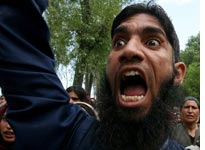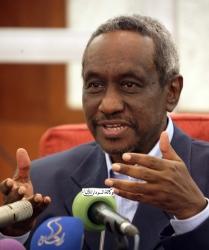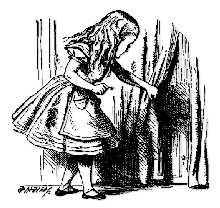 The word "Liberal Islam" provokes very diverse responses in Pakistain. Some laugh it away as an oxymoron, the more secular of us see it with cynicism as consisting of 'moderates' and non-practicing Moslems, and the orthodox treat it scornfully as heresy, justifying that Islam was already revealed as the perfect and unchanging religion, the complete code of life for all times to come. Amidst all this skepticism, the existence of Liberal Islam as a real phenomenon within the Islamic theological tradition is neglected. The marginalization of this mode of Islamic thought from public discourse and the resultant dominance of orthodoxy has resulted in grave consequences all over the world. The word "Liberal Islam" provokes very diverse responses in Pakistain. Some laugh it away as an oxymoron, the more secular of us see it with cynicism as consisting of 'moderates' and non-practicing Moslems, and the orthodox treat it scornfully as heresy, justifying that Islam was already revealed as the perfect and unchanging religion, the complete code of life for all times to come. Amidst all this skepticism, the existence of Liberal Islam as a real phenomenon within the Islamic theological tradition is neglected. The marginalization of this mode of Islamic thought from public discourse and the resultant dominance of orthodoxy has resulted in grave consequences all over the world.
The practice of Islam as it exists all over the world, including Pakistain, can broadly be categorized into three traditions. The first is the Customary tradition, which is noted by the incorporation of regional practices and beliefs, such as reverence for saintly figures, forms of music and beliefs in spirit and magic. The other rapidly spreading tradition is Revivalist Islam, also called fundamentalism or Wahhabism, which aims to rid religion of all un-Islamic influences and envisions a return to the past in which Islam in its 'true' form was practiced. The third and much-neglected tradition of Liberal Islam is critical of both Customary and Revivalist traditions and maintains that Islam is compatible with the spirit of modernity if interpreted properly. It is a tradition within Islam that subscribes to liberal and modern values, such as opposition to theocracy, support for democracy, guarantees of the rights of women and non-Moslems in Islamic societies, defense of freedom of thought, and belief in the potential for human progress.
There are different approaches that theologians of Liberal Islam have taken to support their claims, and the tradition itself encompasses a heterogeneous group of thought. I see it as forming a whole spectrum of beliefs, progressing in a ladder-like fashion. Let's begin with the Brute-Force Liberal Islam. This approach separates religious law from public life and politics without attempting an adequate theological explanation of how or why it is justified in religion. Ataturk and his modernization of Turkey is a poignant example of it, and this is also very commonly adopted in Pakistain by the 'moderates', who can neither let go of Islam nor secularism, and hence live with an uneasy compromise.
Then we have a view-point that Koran and Sunnah if properly understood are already liberal in nature (Liberal Sharia). This is also a popular form of Liberal Islam, and understandably so, promoted these days by Javed Ahmad Ghamidi and the likes of him. It is also, however, the most vulnerable to attacks of conservative-minded scholars, as the proponents generally struggle against the well-developed orthodox theology with all the references to Koran and Hadith and Sunnah worked out in detail.
Progressing on the ladder, we come across Silent Sharia, the idea that Koran and Sunnah are silent on a number of matters, and this silence allows room for progress within Islam. This is another well-known position, but limited in its extent because as it turns out, Sharia with its claim to being a complete code of life is not silent on a whole lot of matters! Abd al-Raziq, an Egyptian scholar, provides an example of this thought when he argues that Sharia is silent on the specific form a government has to take, and thereby he paves the way for democracy in Islam.
Things begin to get heretical from here onwards. We have the Koranists, the group of theologians who claim that the Koran alone is valid as a source of Islamic law and Hadith must be rejected in general for a number of reasons that these scholars present (and debate very furiously!). Ghullam Ahmed Perwez of the Tolue-e-Islam movement is one of the familiar proponents. Being restricted to the Koran allows for greater leverage than having to deal with the whole of Shariah, and also allows for more creative ways of interpretation.
Next we have Contextual Islam which believes that the legal, moral and social dictates of Islamic law are context dependent, and therefore subject to modification with change in context. This may apply to Hadith only, or for some to both Koran and Hadith. There are proponents such as Allama Iqbal who believed that hadiths of legal nature were context-dependent, and Mahmoud Mohamed Taha from Sudan who believed that all the Medinan verses merely refer to the historical applicability of the Koranic essence revealed in Meccan verses to the society as it existed in the Prophet's time and place. Therefore, it is only the general principles elaborated in the Meccan verses that are to be followed, while the rest have to be reconstructed according to the needs of the time.
The most daring of Islamic scholars currently belong to the Interpreted Sharia mode which says that Sharia is divinely revealed, but the interpretations are human and fallible and can be subjected to critique. These theologians argue that interpretation is always based on human perspective and therefore cannot be granted a universal applicability, even though the scripture is divine. Fazlur Rehman of Pakistain is a well-known theologian of this tradition. He said that the Koran is the divine response, through the Prophet's mind, to the moral-social situation of the Prophet's Arabia, and a proper interpretation of the Koran would consist of two steps. The first step would be to understand the Koran's specific responses to specific situations; and the second step would be to generalize those answers and enunciate them as statements of generalized moral-social objectives that can be distilled from the religious texts in the light of socio-historical background. Another established thinker of Interpreted Sharia is the Algerian-French scholar Mohammed Arkoun, who applied Western hermeneutical techniques borrowed from structuralism and postmodernism to the Koran, and preferred a secular analysis keeping in view the historicity of tradition. Arkoun believed that traditional Islamic thought has restricted itself by creating boundaries of interpretations determining what is "thinkable"; Arkoun uses techniques of Deconstruction to uncover the "unthinkable" in Islamic tradition, the meanings which have been marginalized and oppressed. He argues for pluralism within Islam and acceptance of multiple interpretations.
While Moslem scholars have challenged interpretations, there are very few who have contested the literalism that is associated with the scripture; it is possible to maintain, like many Christians, that Koran is not the literal word of God, but was inspired by God and clothed in human language because of the constraints of the human condition. It is also consistent with the view that may see Islam as a mystic tradition rather than a revealed religion. This doctrine has not yet seen any significant adoption among Islamic theologians, but has been expressed in certain neo-Vedantist reviews of Islam and remains a potential mode of thought.
This is another popular version of Liberal Islam in Pakistain, often adopted by people who label themselves (mistakenly) as 'Sufi Moslems'. These adherents of Essence Islam, as I call it, maintain their distance from theological debates by stripping Islam to its bare essence and believe that to follow Islam is not to follow the rules of Sharia, which are human sociopolitical developments, rather it is to follow the essence of what Islam prescribes, such as morality, rationality, justice, modesty, etc., i.e. to be a good human being.
Such is the diversity and richness of Liberal Islam which has been much ignored. We have here a number of theological traditions in which Islam can be made compatible with modernity and liberalism. The only way these solutions can work is if Moslems are willing to do so, which sadly they still are not. As Daniel Pipes astutely remarks: "Islam can be whatever Moslems wish to make of it." The possibility of a modernist reform is there; templates and prototypes exist. The only question for Moslems is: Are you up for it? |
 ...the act of insulting or showing contempt or lack of reverence to a deity, or sacred objects, or toward something considered sacred or inviolable. Some religions consider it to be a crime. In Pakistain you can commit blasphemy by looking cross-eyed at a Koran...
...the act of insulting or showing contempt or lack of reverence to a deity, or sacred objects, or toward something considered sacred or inviolable. Some religions consider it to be a crime. In Pakistain you can commit blasphemy by looking cross-eyed at a Koran...
 The word "Liberal Islam" provokes very diverse responses in Pakistain. Some laugh it away as an oxymoron, the more secular of us see it with cynicism as consisting of 'moderates' and non-practicing
The word "Liberal Islam" provokes very diverse responses in Pakistain. Some laugh it away as an oxymoron, the more secular of us see it with cynicism as consisting of 'moderates' and non-practicing  (Xinhua) -- Sudanese Vice-President
(Xinhua) -- Sudanese Vice-President  Vice President Ali Osman
Vice President Ali Osman  KHARTOUM - Sudanese authorities on Monday executed nine men found guilty in the 2006 murder of a Sudanese newspaper editor, state media and a police source said. Nine people guilty in this case were executed today, the source said.
KHARTOUM - Sudanese authorities on Monday executed nine men found guilty in the 2006 murder of a Sudanese newspaper editor, state media and a police source said. Nine people guilty in this case were executed today, the source said. A man purporting to lead an African branch of al Qaeda claimed responsibility on Tuesday for the beheading of a Sudanese newspaper editor who was found dead last week. The man, in a statement distributed to Sudanese newspapers, called editor
A man purporting to lead an African branch of al Qaeda claimed responsibility on Tuesday for the beheading of a Sudanese newspaper editor who was found dead last week. The man, in a statement distributed to Sudanese newspapers, called editor  The American ambassador to the United Nations, John Bolton, criticized Secretary-General Annan yesterday for employing double standards over sending U.N. troops to the war-torn Sudanese region of Darfur.
The American ambassador to the United Nations, John Bolton, criticized Secretary-General Annan yesterday for employing double standards over sending U.N. troops to the war-torn Sudanese region of Darfur.